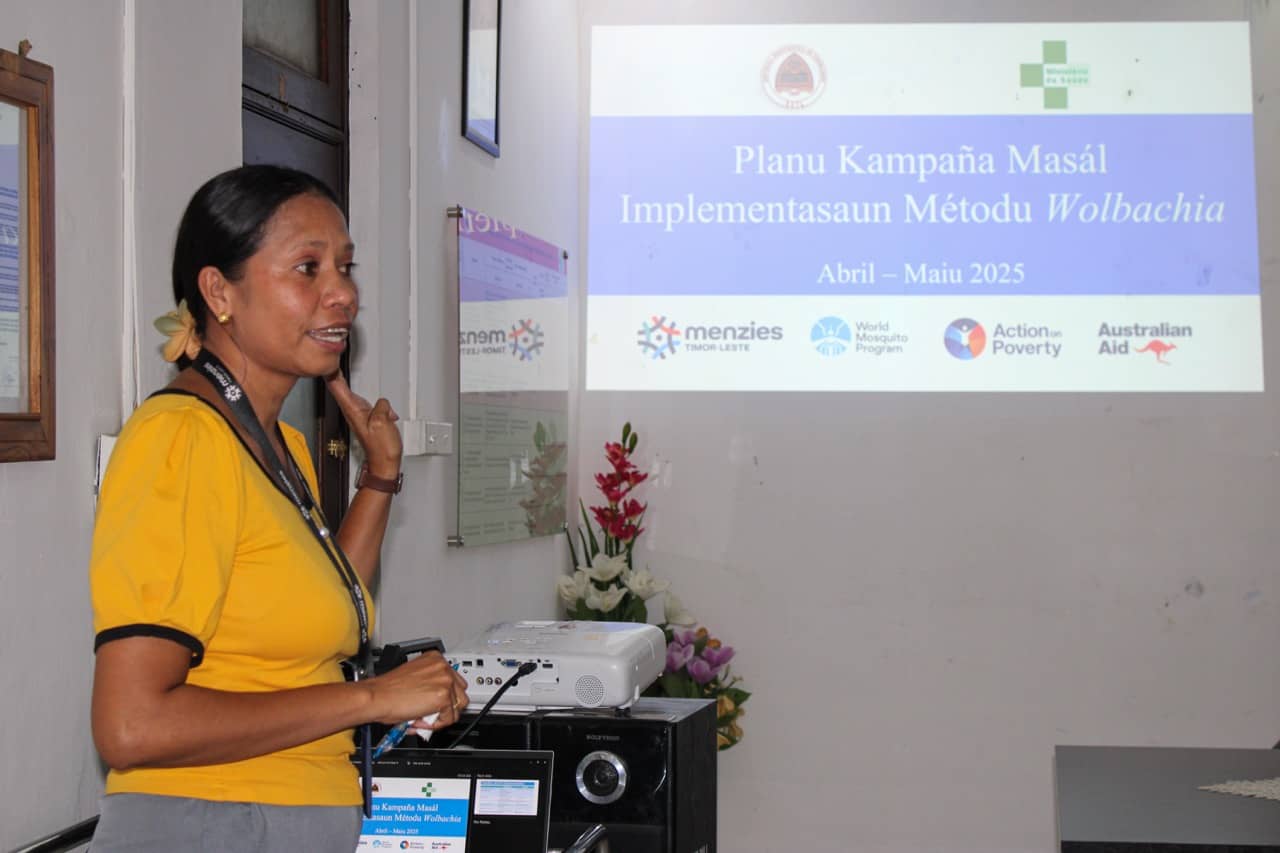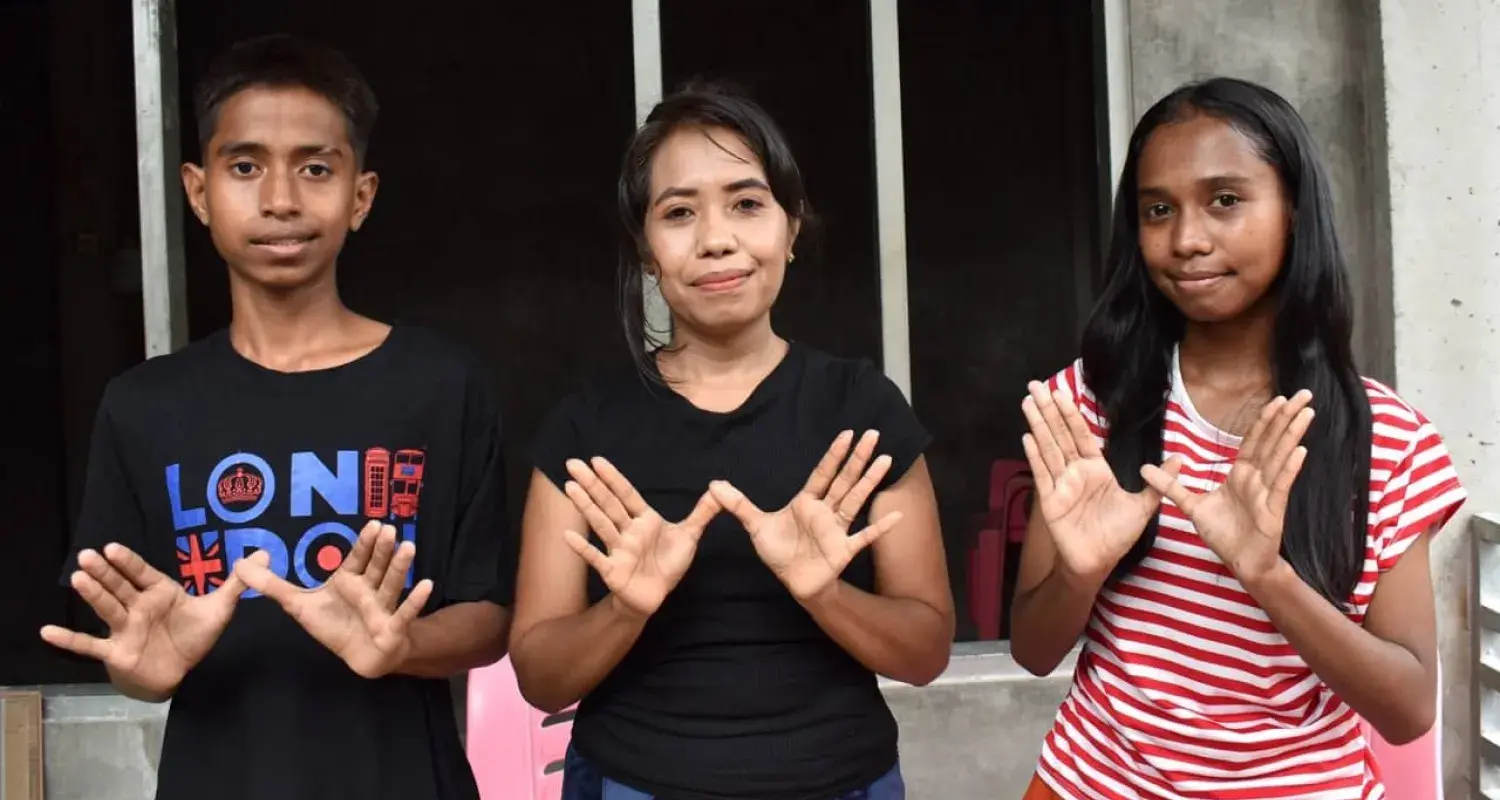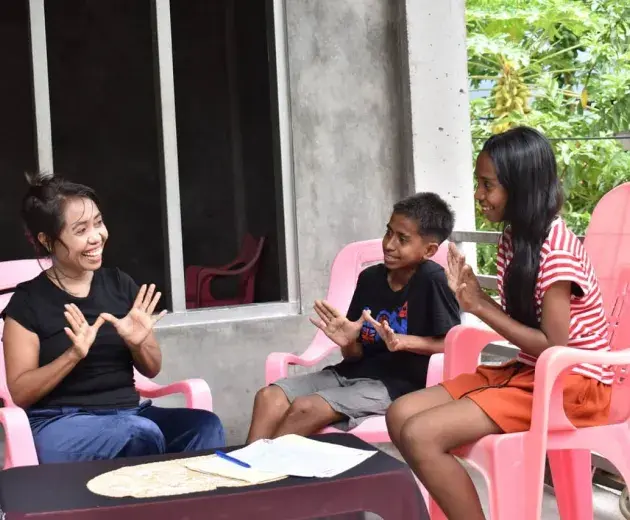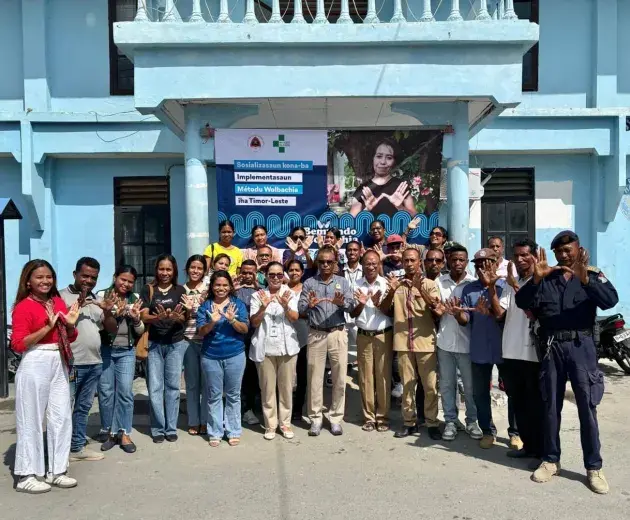In Dili, Timor-Leste's coastal capital, dengue fever has devastated families like Elsa Pinto's for years. But a groundbreaking collaboration between the World Mosquito Program and local partners is set to change this narrative. By introducing Wolbachia mosquitoes—a safe, natural solution—to the region, this initiative aims to protect 240,000 people from dengue and other mosquito-borne diseases, offering renewed hope to a community long plagued by preventable suffering.
The Human Cost of Dengue in Timor-Leste: Elsa's Story
Elsa Fernandes Pinto recalls the rollercoaster of emotions when her second child got dengue in 2015. There was the high fever, the loss of appetite, rashes, nosebleeds, and vomiting.
"Our family is a victim of dengue fever," Pinto says, perched outside her home in a leafy neighbourhood in Dili, Timor-Leste's coastal capital.
Since her first encounter with dengue, all three of her children have been impacted by the disease, with her youngest most recently hospitalised in 2021.
Be Part of the Solution: Join Our Community
Discover how we’re transforming lives and combating mosquito-borne illnesses globally. Sign up for exclusive insights and updates delivered straight to your inbox.
A Collaborative Approach: Four Organisations, One Mission
"Each year, we use vector control like fogging, educational promotion and awareness to the communities," says Mateus Pinto, Director of Dili Municipal Health Service. "But dengue cases are still registered annually."
Mateus is putting his faith in a new collaboration he believes will have a hugely beneficial impact on the capital.
It will see the World Mosquito Program (WMP), Timor-Leste Ministry of Health (MoH), Action on Poverty (AOP) and the Menzies School of Health Research join forces to address the threat of dengue and other mosquito-borne diseases in the country.
The project, supported by the Australian government through the Australian NGO Cooperation Program (ANCP) and the Macquarie Group Foundation, will see the release of Wolbachia mosquitoes – a safe, natural and effective method for preventing mosquito-borne diseases – in Dili.
Timor-Leste has some of the most significant marine resources in the world, yet remains one of the least visited countries in the world. The country, ringed by coral reefs and home to more than 20 languages and dialects, only gained full independence in 2002, after years of occupation and guerilla warfare, which are chronicled in Dili's Resistance Archive and Museum. In recent years, mosquito-borne diseases have plagued communities and Mateus says new measures are more than welcome.

Beyond Mosquitoes: Breaking the Cycle of Disease and Poverty
"Preventing diseases like dengue fever is essential to breaking the cycle of poverty, because without health, communities can't thrive," adds Howie. "The Wolbachia method offers Timor-Leste a safe and sustainable solution that protects everyone, especially those most affected by poverty."
Once there is strong community approval, WMP aims to start the Wolbachia mosquito releases in July 2025, which will cover the whole urban population of the capital, Dili city, roughly 20km² and around 240,000 people.
Deirdre Ballinger, First Secretary of Health, Australian Embassy in Timor-Leste, says as a long-term partner with the Ministry of Health, Australia is pleased to be supporting an "innovative and sustainable public health solution" which can significantly reduce mosquito-borne disease and deaths in the country.
"Self-sustaining public health solutions like this are unique," says Ballinger. "It will help save thousands of lives – many of whom are typically children."

"We are really happy to see that the Ministry of Health wants to implement a new method that we're sure will make a significant difference in the fight against dengue. We hope it will reduce dengue transmission in our country and most importantly reduce the mortality rate of those affected by the disease."




